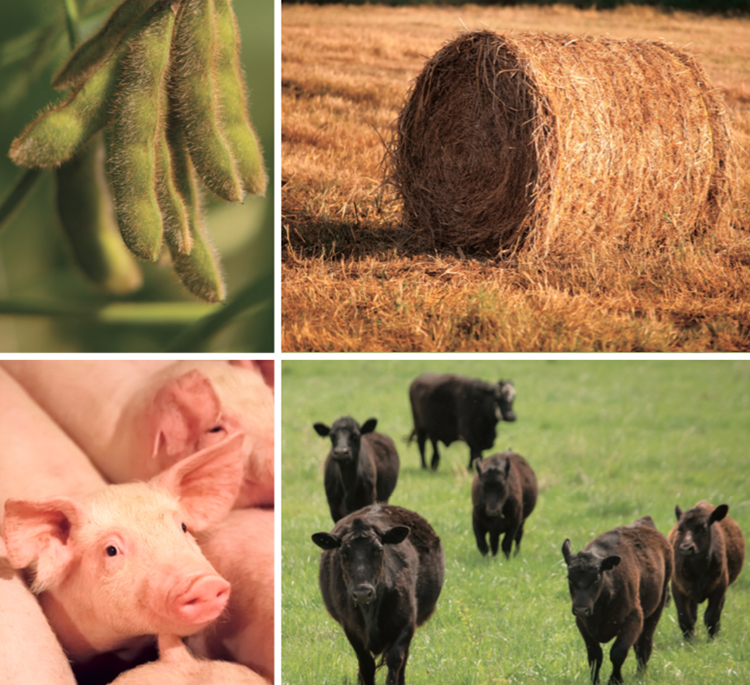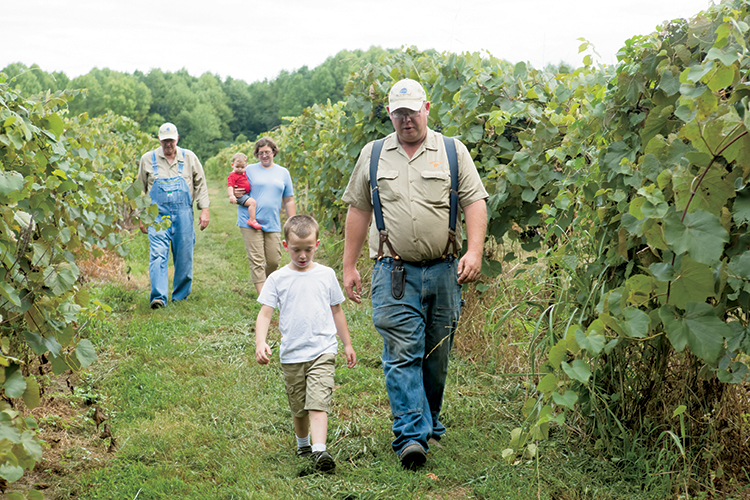Home > Tennessee > Tennessee Farm to Table > How Diversification Helps Tennessee Farmers
How Diversification Helps Tennessee Farmers
In partnership with: Tennessee Department of Agriculture
 Tennessee farmers are looking toward the future for long-term success. That includes expanding their farms by adding new crops and activities. Diversified ag products include agritourism, aquaculture, fruits and vegetables, honeybees, horticulture, organics,
Tennessee farmers are looking toward the future for long-term success. That includes expanding their farms by adding new crops and activities. Diversified ag products include agritourism, aquaculture, fruits and vegetables, honeybees, horticulture, organics,
and value-added goods.
Farmers like Jamie Weaver from Estill Springs are thinking ahead.
“We’ve always been diversifying,” says Weaver, who owns and operates Weaver Farms with his dad, Ray, and with support from his mom, Elaine, and wife, Ashley. “In my lifetime, everybody has become more specialized. We like the different challenges that come with farming. You don’t get stuck doing the same thing.”
Diversifying a farm helps farms by lessening the risk of relying too much on any one crop or animal.
“One day you’re working with cows, next day you’re row cropping, and the next you’re in the vineyards,” Weaver says. “But the big benefit is that you can spread the risk by being diversified.”
Broadening an operation is nothing new for the state’s farmers, as many have found different ways to make or supplement income. The Tennessee Department of Agriculture has helped thousands of farmers through its Tennessee Agricultural Enhancement Program, established in 2005.

Something New
For Weaver Farms, the first step was growing grapes, with the family planting its vineyards in 2008. The farm has been operating for seven generations. A former dairy operation, it has raised row crops, hogs and beef cattle.
Most of the grapes grown at Weaver Farms are sold to nearby Beans Creek Winery in Manchester, and others are processed into grape jellies sold on the farm or at farmers markets. The operation also sells its own beef and pork.
Next on the list is the installation of high tunnels.
“We’re trying to get some produce in nonpeak times,” Weaver says. “We’re going to farmers markets anyway with our meat; so why not have some produce, especially during nonpeak times? We’re always looking for something new.”
Brant Crowder, farm manager of Old McDonald’s Farm in Sale Creek, has a similar outlook. In the past, he recognized the importance of diversification when weather conditions posed a challenge. The choice came after a severe drought in 2008.
“That led us to looking at other things,” he says. “We realized the only way we were going to make ends meet was to do something other than just row crops and cattle.”

A venture into agritourism seemed to make the most sense for Old McDonald’s Farm. When the extremely dry weather began to affect production, the farm opened its doors to visitors, eventually launching fall festivals and other events. In addition, the farm allows barn sales so vendors can sell antiques, arts and crafts, and various foods.
“We just finished our sixth year [in 2016] in agritourism,” Crowder says. “It’s been fairly successful. Even with the hot and dry weather this year, we still had about 20,000 visitors.”
Old McDonald’s Farm plans to also feature school field trips in the spring and add a Christmas festival.
To find the farms near you with pick-your-own crops, agritourism activities, retail meats, CSAs or other farm-direct consumer opportunities, use the free Pick TN mobile app or visit picktnproducts.org.



